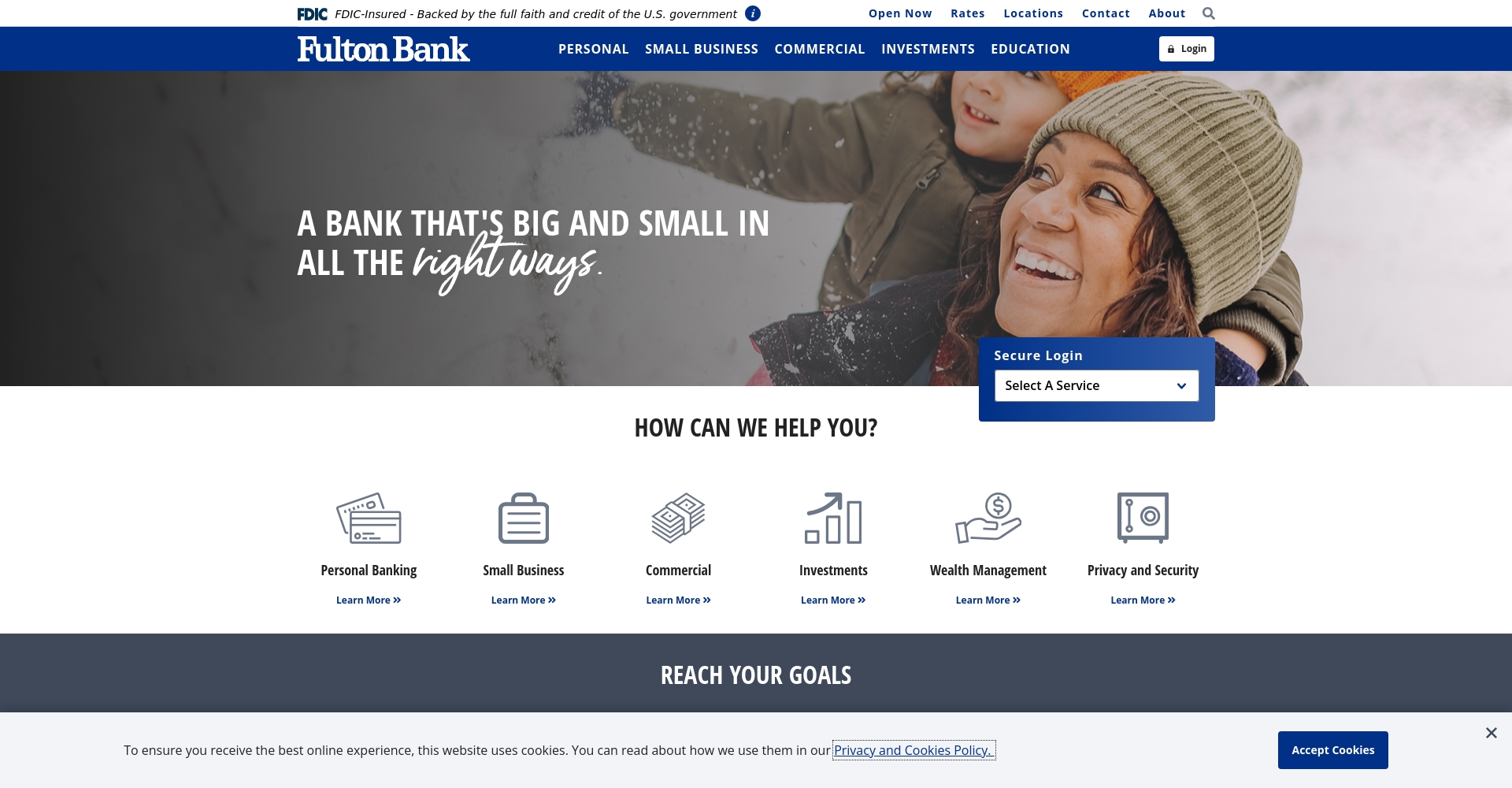Fulton Bank's acquisition of Republic Bank marks a significant shift in the regional banking landscape. By assuming Republic Bank's assets and deposits, Fulton Bank has expanded its market presence and customer base, particularly in the Philadelphia area. This strategic move underscores the ongoing consolidation within the industry, reflecting the challenges and opportunities faced by regional lenders.

Founded in 1988, Republic Bank offers a comprehensive range of financial services, including personal banking, small business banking, commercial banking, and investment services. Its unique selling points include FDIC-insured deposits, competitive promotional rates, and a commitment to local decision-making. Additionally, Republic Bank provides extensive educational resources to help customers make informed financial decisions and actively engages in community improvement through the Fulton Forward initiative.
Fulton Bank operates as a full-service financial institution, offering a wide range of banking and financial services to individuals, small businesses, and commercial entities. Key products include checking and savings accounts, credit cards, loans, mortgages, and investment services. With over 200 financial centers and more than 230 ATMs, Fulton Bank holds a strong market position, emphasizing customer service and local decision-making. The bank is also committed to community development through initiatives like Fulton Forward.
Fulton Bank acquired Republic Bank on April 26, 2024. This acquisition occurred amidst a period of heightened scrutiny and consolidation within the regional banking sector, following the failures of several banks in early 2023. The transaction, facilitated by the FDIC, aimed to stabilize Republic Bank's operations and expand Fulton's market presence, particularly in the Philadelphia area. The acquisition also marked the first FDIC-insured bank failure of 2024, reflecting ongoing challenges in the industry.
The acquisition of Republic Bank by Fulton Bank has led to significant operational changes. Republic Bank's 32 branches in New Jersey, Pennsylvania, and New York will reopen as Fulton Bank locations, ensuring continuity for customers. Additionally, Fulton Bank plans to cut 111 jobs in New Jersey to eliminate redundant roles, while some positions will be repurposed into new roles. This restructuring aims to streamline operations and reduce costs, with an estimated $8 million in annual pre-tax operating cost savings. Rick Kraemer will join Fulton as the new CFO, further solidifying the management team.
In terms of product offerings and services, Republic Bank customers will now have access to Fulton's comprehensive suite of consumer, commercial, and wealth advisory products. The transition has been designed to be seamless, with customers retaining uninterrupted access to their accounts and services. While some Republic Bank employees face job cuts, the overall integration is expected to enhance service delivery and customer satisfaction. For founders considering business transitions, tools like Sunset can assist in managing such processes compliantly, ensuring a smooth and efficient transition.